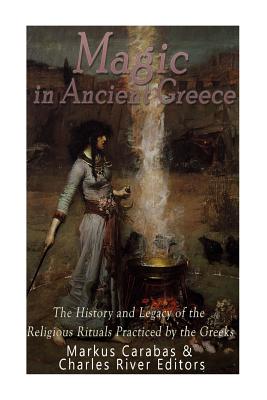*includes pictures *Includes ancient descriptions of magicians and magical practices *Includes online resources and a bibliography for further reading "Whether true or not, men had trusted in and believed these things." - Strabo Magic today is the stuff of fairy tales and illusionists, something to titillate and perplex perhaps. But the prospect of "taking magic seriously" - despite the best efforts of occult movements in recent years, from the O.T.O. to the Chaos magicians in the 1980s - is still a very difficult pill for most people to swallow in the 21st century. This is not to say to disparage nor denigrate the efforts made by illusionists such as Penn & Teller or Derren Brown, who openly declare that what they do is to perform tricks, utilizing psychology and misdirection in order to entertain a willing crowd. These "magical practitioners" are artists well deserving of the name. In this case, taking magic seriously meant to actually believe in magic and take it at its word, outlined best in Owen Davies" summary of the anthropologist Max Weber"s thoughts on the matter: "[Magic] promised to give humans control over a natural world governed by spirits." This view of Weber"s could be (and has been) seen as some kind of definition of what "magic" is, or at least what it was to the ancient Greeks. Many scholars have tried and failed to isolate a clear definition of what "magic" is or was. Magic - as opposed to religion, personal or otherwise - is a notoriously difficult concept to pin down. In ancient Greece, "magic was not distinct from religion, rather an unwelcome, improper expression of it." In other words, it's important not to think of it as a different definition of magic but to instead understand how the ancient Greeks believed certain aspects of magic functioned in their world. Since there are no surviving accounts of any full, contemporary hypothesis of what magic was, creating a picture of their belief in magic requires exploring what cultural factors shaped their beliefs. Often, the best surviving evidence of those beliefs comes from magic's biggest critics. Most sources hail from the Archaic and Classical Periods of ancient Greece. It is in the Archaic Period that the ancient Greek culture, as people today know it, formed itself from the broken shards of the Mycenaean Palace Period scattered across the country after its collapse some 400 years earlier. Out of this formation came some early attempts at defining magic and magical practitioners as











